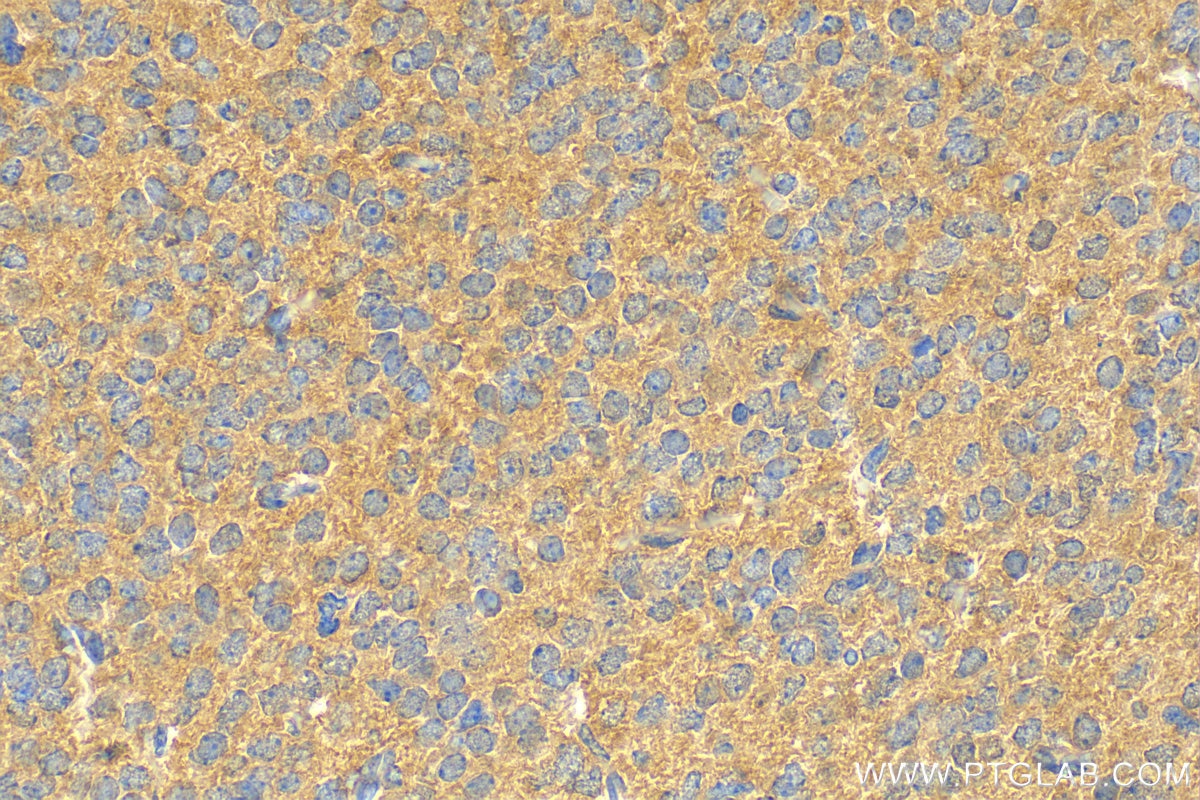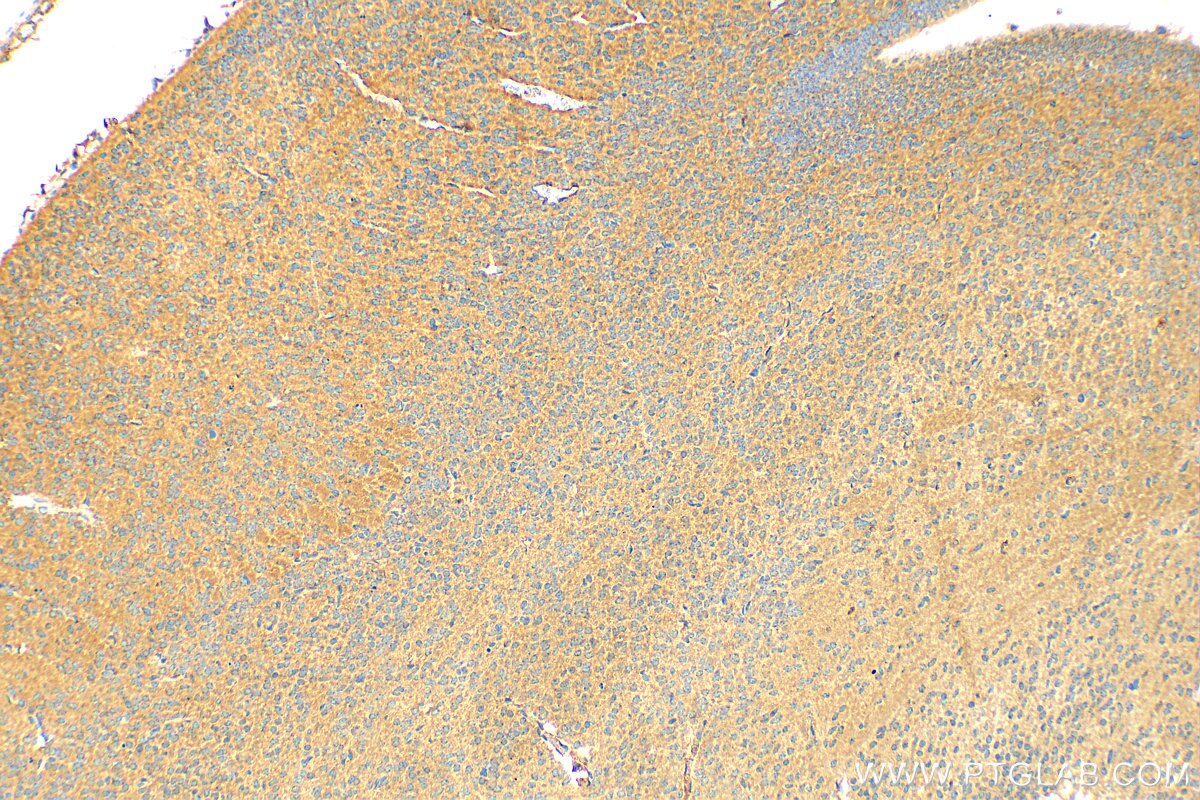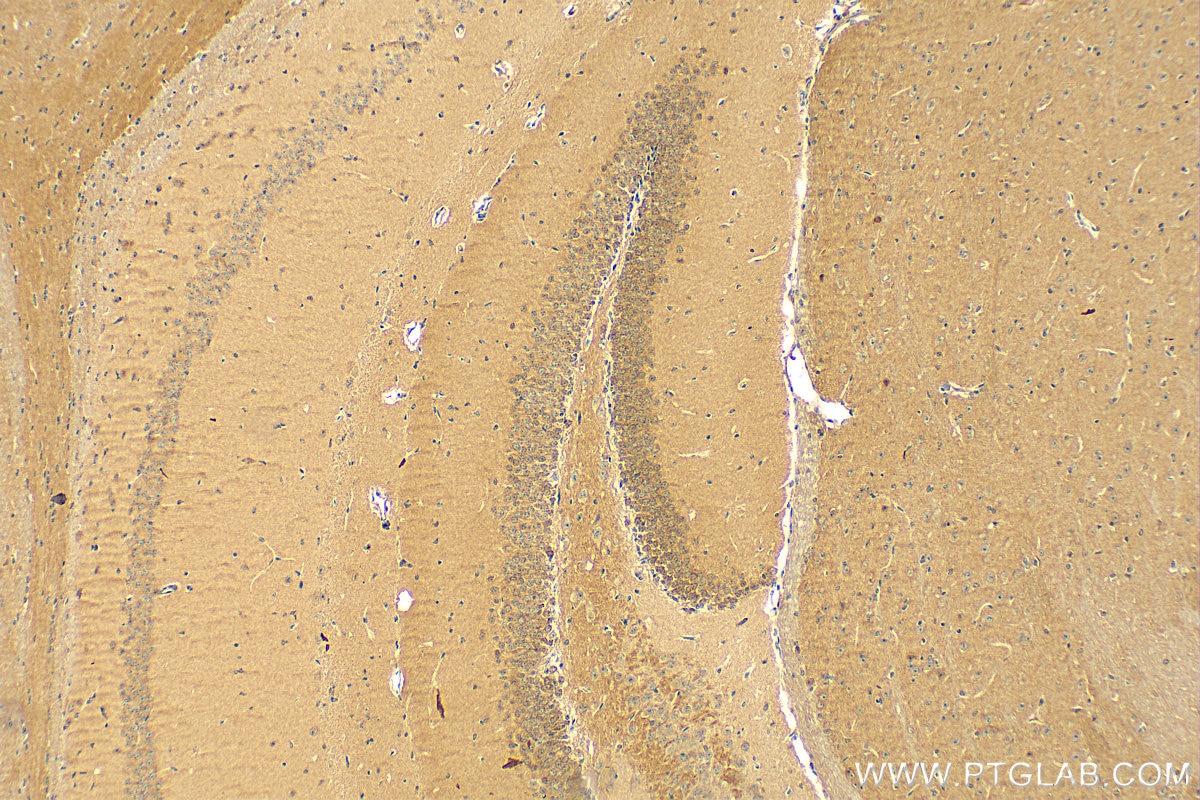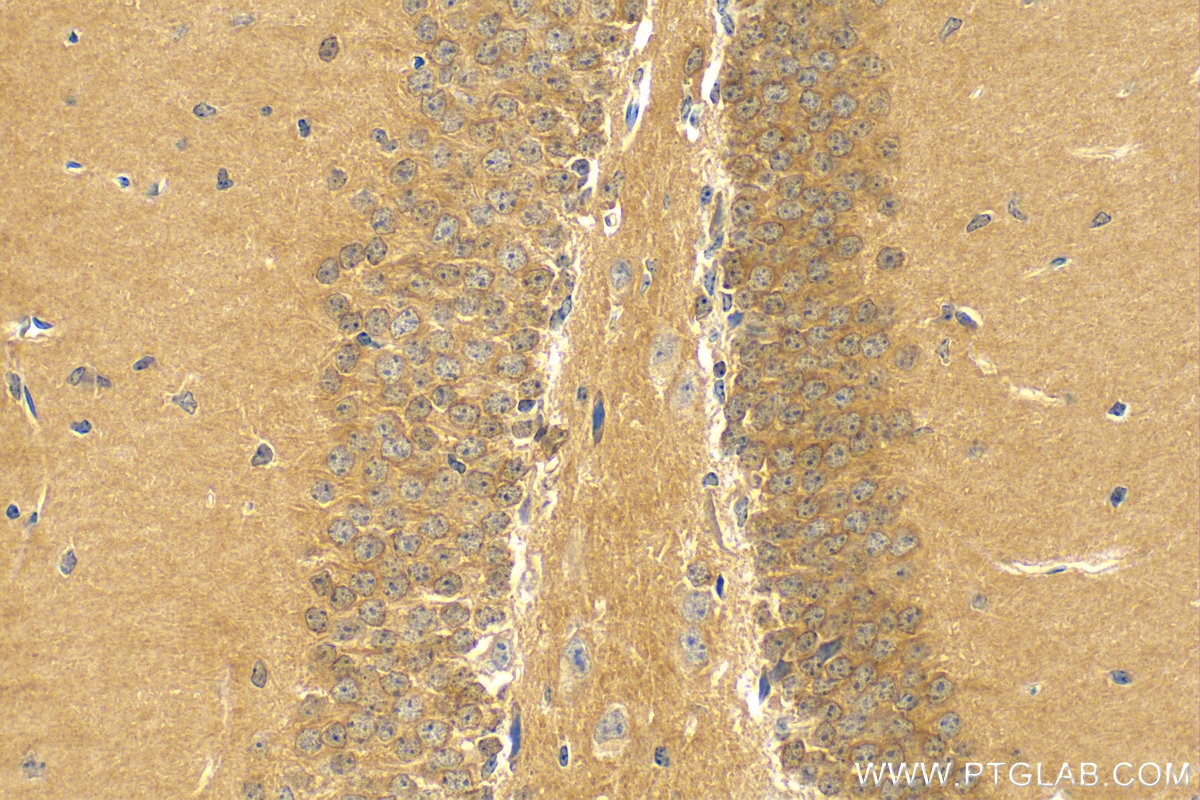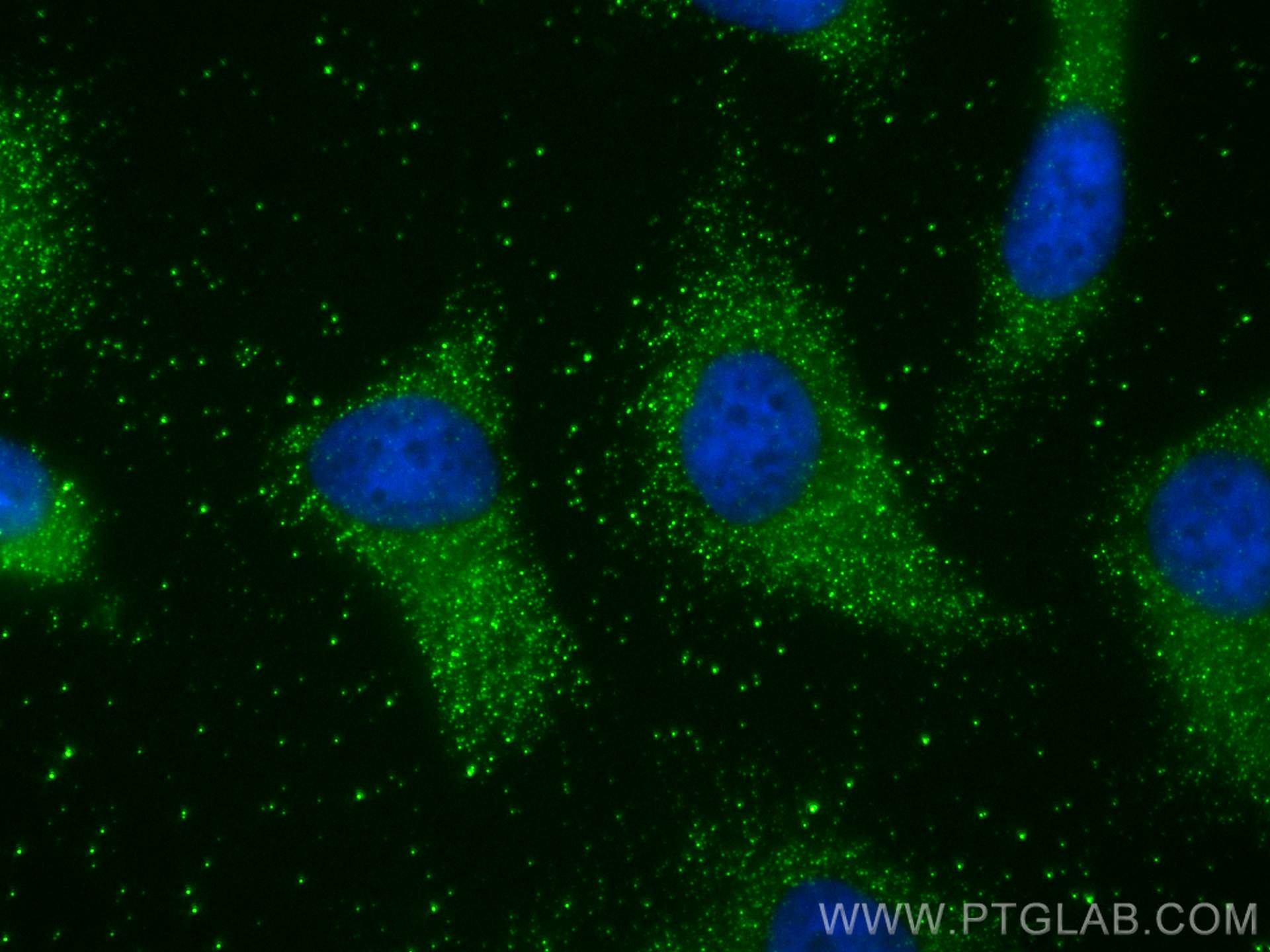Anticorps Polyclonal de lapin anti-PKIA
PKIA Polyclonal Antibody for IF, IHC, ELISA
Hôte / Isotype
Lapin / IgG
Réactivité testée
Humain, rat, souris
Applications
IHC, IF/ICC, ELISA
Conjugaison
Non conjugué
N° de cat : 11743-1-AP
Synonymes
Galerie de données de validation
Applications testées
| Résultats positifs en IHC | tissu embryonnaire de souris, tissu cérébral de souris il est suggéré de démasquer l'antigène avec un tampon de TE buffer pH 9.0; (*) À défaut, 'le démasquage de l'antigène peut être 'effectué avec un tampon citrate pH 6,0. |
| Résultats positifs en IF/ICC | cellules HeLa, |
Dilution recommandée
| Application | Dilution |
|---|---|
| Immunohistochimie (IHC) | IHC : 1:50-1:500 |
| Immunofluorescence (IF)/ICC | IF/ICC : 1:50-1:500 |
| It is recommended that this reagent should be titrated in each testing system to obtain optimal results. | |
| Sample-dependent, check data in validation data gallery | |
Informations sur le produit
11743-1-AP cible PKIA dans les applications de IHC, IF/ICC, ELISA et montre une réactivité avec des échantillons Humain, rat, souris
| Réactivité | Humain, rat, souris |
| Hôte / Isotype | Lapin / IgG |
| Clonalité | Polyclonal |
| Type | Anticorps |
| Immunogène | PKIA Protéine recombinante Ag2338 |
| Nom complet | protein kinase (cAMP-dependent, catalytic) inhibitor alpha |
| Masse moléculaire calculée | 76 aa, 8 kDa |
| Numéro d’acquisition GenBank | BC022265 |
| Symbole du gène | PKIA |
| Identification du gène (NCBI) | 5569 |
| Conjugaison | Non conjugué |
| Forme | Liquide |
| Méthode de purification | Purification par affinité contre l'antigène |
| Tampon de stockage | PBS avec azoture de sodium à 0,02 % et glycérol à 50 % pH 7,3 |
| Conditions de stockage | Stocker à -20°C. Stable pendant un an après l'expédition. L'aliquotage n'est pas nécessaire pour le stockage à -20oC Les 20ul contiennent 0,1% de BSA. |
Informations générales
cAMP-dependent protein kinase inhibitor alpha (PKIA) is also named as PRKACN1, and belongs to the PKI family. Among them, PKIA, a member of protein kinase A (PKA) inhibitor family, was found to be most significantly and highly expressed in susceptible animals (PMID:24910983). Decreased PKIA signaling would directly impact PKA activation, potentially inducing DRP1 phosphorylation and increasing ER Ca2+ stores (PMID:32152556). miR-129-5p activated PKA to regulate the phosphorylation of beta-catenin and cAMP-response element binding protein (CREB) by inhibiting PKIA (PMID:36222334).
Protocole
| Product Specific Protocols | |
|---|---|
| IHC protocol for PKIA antibody 11743-1-AP | Download protocol |
| IF protocol for PKIA antibody 11743-1-AP | Download protocol |
| Standard Protocols | |
|---|---|
| Click here to view our Standard Protocols |
